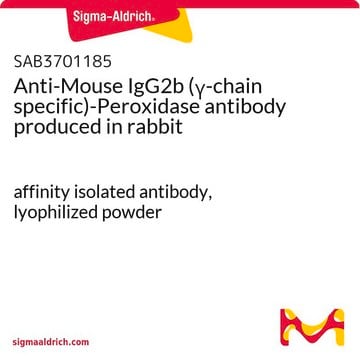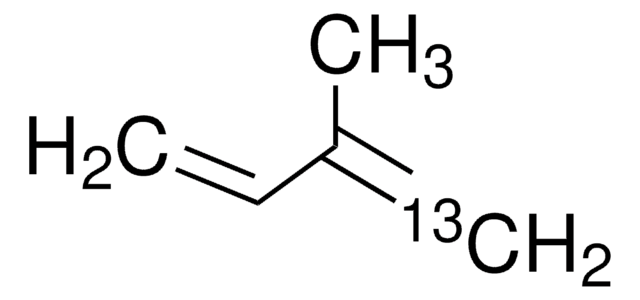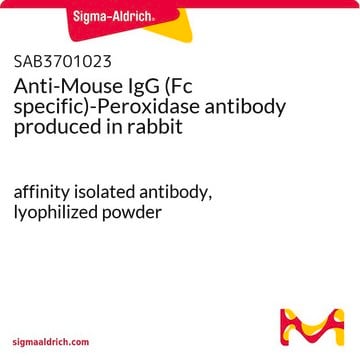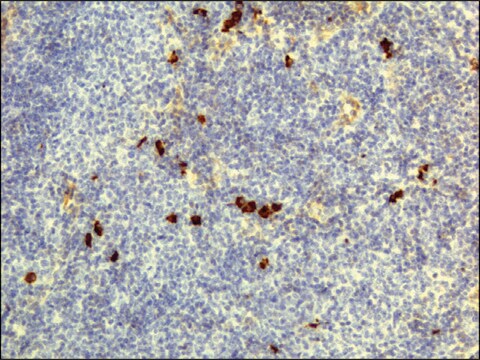SAB3701192
Anti-Mouse IgG3 (γ-chain specific)-Peroxidase antibody produced in rabbit
affinity isolated antibody, lyophilized powder
Synonim(y):
HRP
About This Item
Polecane produkty
pochodzenie biologiczne
rabbit
białko sprzężone
peroxidase conjugate
forma przeciwciała
affinity isolated antibody
rodzaj przeciwciała
secondary antibodies
klon
polyclonal
Postać
lyophilized powder
reaktywność gatunkowa
mouse
metody
immunohistochemistry: suitable
indirect ELISA: suitable
western blot: suitable
Warunki transportu
wet ice
temp. przechowywania
2-8°C
docelowa modyfikacja potranslacyjna
unmodified
Opis ogólny
Specyficzność
Immunogen
Właściwości fizyczne
Postać fizyczna
Rekonstytucja
Oświadczenie o zrzeczeniu się odpowiedzialności
Nie możesz znaleźć właściwego produktu?
Wypróbuj nasz Narzędzie selektora produktów.
Hasło ostrzegawcze
Warning
Zwroty wskazujące rodzaj zagrożenia
Zwroty wskazujące środki ostrożności
Klasyfikacja zagrożeń
Skin Sens. 1
Kod klasy składowania
11 - Combustible Solids
Klasa zagrożenia wodnego (WGK)
WGK 3
Temperatura zapłonu (°F)
Not applicable
Temperatura zapłonu (°C)
Not applicable
Certyfikaty analizy (CoA)
Poszukaj Certyfikaty analizy (CoA), wpisując numer partii/serii produktów. Numery serii i partii można znaleźć na etykiecie produktu po słowach „seria” lub „partia”.
Masz już ten produkt?
Dokumenty związane z niedawno zakupionymi produktami zostały zamieszczone w Bibliotece dokumentów.
Nasz zespół naukowców ma doświadczenie we wszystkich obszarach badań, w tym w naukach przyrodniczych, materiałoznawstwie, syntezie chemicznej, chromatografii, analityce i wielu innych dziedzinach.
Skontaktuj się z zespołem ds. pomocy technicznej







